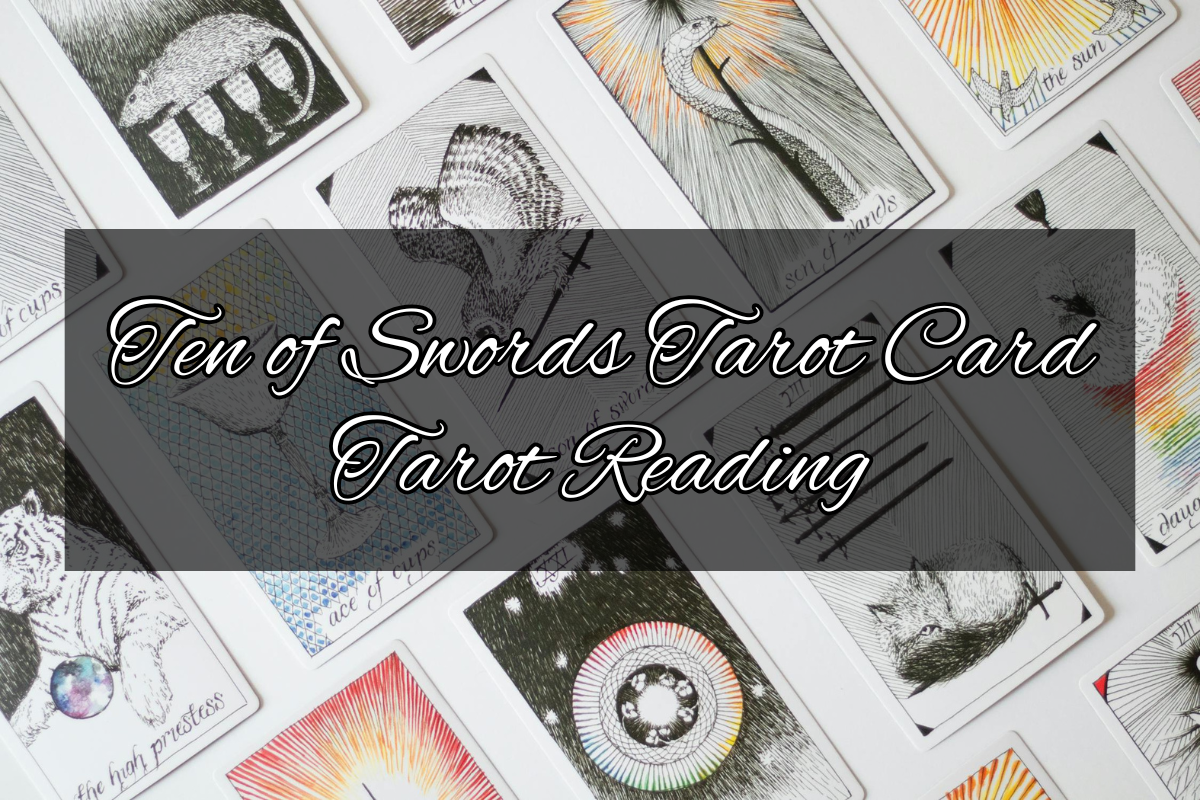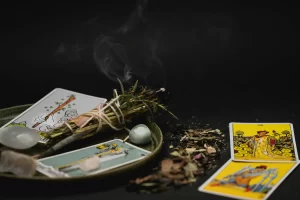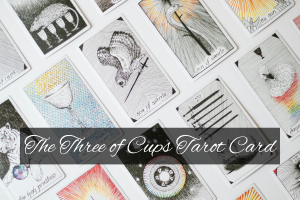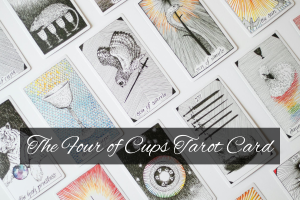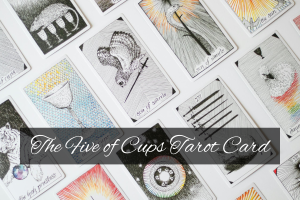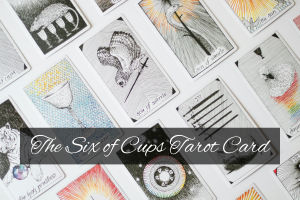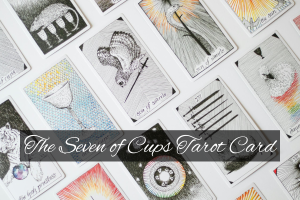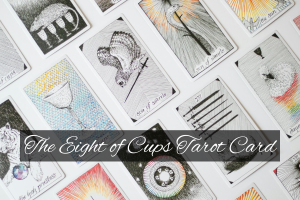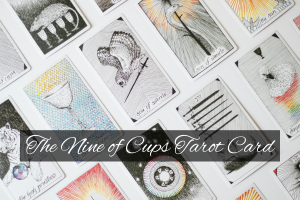Hey there, Tarot crew! Ever pulled a card that feels like a gut punch—like it’s saying, “Yeah, it’s over, and it hurts like hell”? That’s the Ten of Swords for you—a card that’s all about rock bottom, betrayal, and the kind of ending that leaves you reeling. It’s not a cozy hug like The Star or a fiery jolt like The Tower, but it’s got a stark, dramatic power that demands you sit up and listen. In the wild, sprawling deck of Tarot’s 78 cards, the Ten of Swords stands out as a brutal but honest marker of closure.
Whether you’re a newbie still figuring out how to shuffle without dropping the deck or a seasoned reader who’s faced every spread under the sun, this article will unpack the Ten of Swords from every jagged edge. We’ll dive into its history, symbolism, meanings in readings, and how it can guide you through the wreckage to something new. So, grab a coffee (or a stiff drink, no shame), settle in, and let’s wrestle with the raw, real world of the Ten of Swords together.
What Is the Ten of Swords?
Picture this: you’ve hit the end of the line—stabbed in the back, flat on your face, and there’s nowhere left to fall. That’s the Ten of Swords in a nutshell. It’s part of the Minor Arcana’s Swords suit, tied to the element of Air—think intellect, communication, and the mental blows that cut deep. As the “ten” in the suit, it’s about completion, but with a twist: this completion’s a crash landing, the final nail in a coffin of struggle.
In the Rider-Waite deck—the one most of us picture when Tarot comes up—the Ten of Swords paints a grim scene. A figure lies face-down on the ground, ten swords plunged into their back, blood pooling beneath. The sky’s dark, stormy, but a sliver of golden dawn peeks over the horizon. It’s a vibe of “it’s done, and it’s brutal—but there’s light coming.” This card’s about endings, betrayal, and the pain of hitting bottom, with a whisper of hope if you squint.
I pulled this card once after a friendship imploded—caught them talking trash behind my back, and it shattered me. That figure, stabbed to bits? It was me, gutted and done. The Ten of Swords didn’t soften the blow—it said, “Yeah, it’s over. Feel it.” Harsh, but true.
Historical Roots: Where Did This Card Come From?
To really get the Ten of Swords, let’s step back in time. The Tarot kicked off as a game in 15th-century Europe—think Italian nobles tossing cards around over wine and witty jabs. By the 18th century, it had morphed into a divination tool, thanks to mystics like Jean-Baptiste Alliette (Etteilla), who saw cosmic depth in those old designs. The Swords suit, linked to Air, pulls from ancient vibes tying the element to thought and conflict—swords as symbols of the mind, sharp and sometimes deadly.
The number ten’s got its own story—think completion, like the ten fingers on your hands or the tenth lap of a race. In Tarot, tens signal an end or a peak, and the Ten of Swords fits that mold with a thud. Historically, swords tied to power and justice, but also to defeat—think of a warrior felled by too many blades. This card channels that finality, blending mental clarity with the sting of loss. It’s less about the fight and more about the fall.
Symbolism Breakdown: What’s It All Mean?
The Ten of Swords is a visual wallop, packed with symbols that tell a tale of collapse. Let’s break it down:
- The Figure: Face-down, ten swords in their back—it’s total defeat. It’s you when you’ve taken every hit and can’t get up.
- The Ten Swords: Overkill—ten’s the max, no more room for pain. They’re thoughts, words, or betrayals that pile on till you break.
- The Blood: Red and stark, it’s the raw cost—emotional, mental, physical. It’s the wound you can’t ignore.
- The Stormy Sky: Dark clouds loom—despair, chaos, the weight of the end. It’s the storm that’s finally spent itself.
- The Dawn: A golden sliver on the horizon—hope, faint but real. It’s the promise that this isn’t forever.
I drew this card once after a brutal breakup—caught my ex cheating, and it was lights out on us. Those swords? Every lie, every sting. The dawn? A tiny “you’ll survive” I couldn’t feel yet. It’s a card that says, “It’s bad—but it’s done.”
Ten of Swords in a Reading: What’s It Telling You?
When the Ten of Swords lands in your spread, it’s like the universe dropping a bomb and a bandage—it’s here to mark the end and hint at recovery. Here’s how it might play out:
- Career: Game over—maybe a job’s gone, a project’s crashed, or you’ve hit burnout’s brick wall. It’s brutal, but final.
- Relationships: Betrayal or bust. Could be a backstab, a breakup, or a trust-shattering blow. It’s the end of the rope.
- Personal Growth: Rock bottom time. You’re facing a hard truth—failure, loss, or a self-sabotage reckoning.
This card’s a cold slap, not a soft pat. I pulled it once in a work spread—had just been let go after months of stress. The Ten of Swords said, “It’s over—grieve it.” Took a while, but I dusted off eventually.
Upright vs. Reversed: The Two Sides of Ruin
The Ten of Swords shifts its tune depending on its position. Here’s the scoop:
- Upright:
- Endings, betrayal, or collapse.
- You’re down—stabbed, done, no fight left.
- A call to accept it and look for dawn.
- Reversed:
- Recovery’s starting—the worst is past, you’re climbing out.
- Or, resistance—you’re clinging to the wreckage, delaying the heal.
- A nudge to let go or rise up.
I drew the reversed Ten of Swords once after weeks of wallowing post-job loss. It felt like, “You’re done falling—get up.” Took a gig soon after—proof it was right.
How to Work with the Ten of Swords Energy
This card’s energy is heavy—sharp and final—like a storm that’s blown itself out. But it’s not here to bury you; it’s here to clear the slate. Here’s how to roll with it:
- Feel the Fall: Don’t dodge the pain—cry, yell, let it hit. I’ve sobbed with this card out—ugly, but it purges.
- See the End: It’s over—accept it. No more fighting a dead cause; the swords are in.
- Spot the Dawn: Look for the light—small wins, new starts. I’ve journaled with this card to find the “next”—it’s there.
One trick I love is picturing those swords pulling out—one by one, till I’m free. Sounds dramatic, but it lifts the weight—try it when you’re floored.
Ten of Swords in Pop Culture: A Brutal Echo
This card sneaks into tales of collapse. In Game of Thrones, Ned Stark’s end—betrayed, blades everywhere—screams Ten of Swords. Or think of The Lion King—Scar’s backstab, Simba’s fall. It’s the universal crash of hitting bottom.
Common Misconceptions: Clearing the Blood
Let’s bust some myths about the Ten of Swords:
- It’s Death: Nope. It’s an end—painful, but not literal doom. You’ll live.
- It’s All Outside: Not quite. Betrayal stings, but your head can stab too—self-inflicted cuts count.
- No Hope: Wrong. That dawn’s real—it’s over, but you’re not.
I used to freak over this card, thinking it meant I was toast. Now I see it as a tough pal saying, “You’re down—now rise.”
Ten of Swords and Your Zodiac Sign: Cosmic Cuts
Astrology buffs, here’s how this card vibes with your element:
- Air Signs (Gemini, Libra, Aquarius):
- Mental blows hit hard—overthinking the fall. Libra might feel it as trust shattered.
- Example: My Gemini pal pulled it after a friend’s lie—mind gutted.
- Fire Signs (Aries, Leo, Sagittarius):
- Defeat’s rare—you hate losing. Leo might see it as pride stabbed.
- Think: An Aries floored by a backstab.
- Water Signs (Cancer, Scorpio, Pisces):
- Emotional carnage runs deep. Scorpio could turn it into vengeance.
- Picture: A Pisces weeping over loss.
- Earth Signs (Taurus, Virgo, Capricorn):
- You hate the chaos—crave solid ground. Virgo might dissect the ruin.
- Imagine: A Taurus crushed by change.
What’s your sign? How’s this card slicing you?
Final Thoughts: Rise from the Rubble
The Ten of Swords isn’t here to finish you—it’s here to free you. It’s the raw, bloody truth of endings, the betrayal that stabs, and the dawn that waits if you’d just look up. Whether you’re floored by a job, a love, or your own mistakes, this card says, “It’s over—you’re still here.” It’s not about despair; it’s about the grit to stand again.
Next time you pull the Ten of Swords, don’t flinch—nod. Let it guide you through the wreck, because on the other side? That’s where the new starts. And if you need a good wallow first, I’m with you—been there, bled that, rose up stronger. Happy healing, tough souls!
